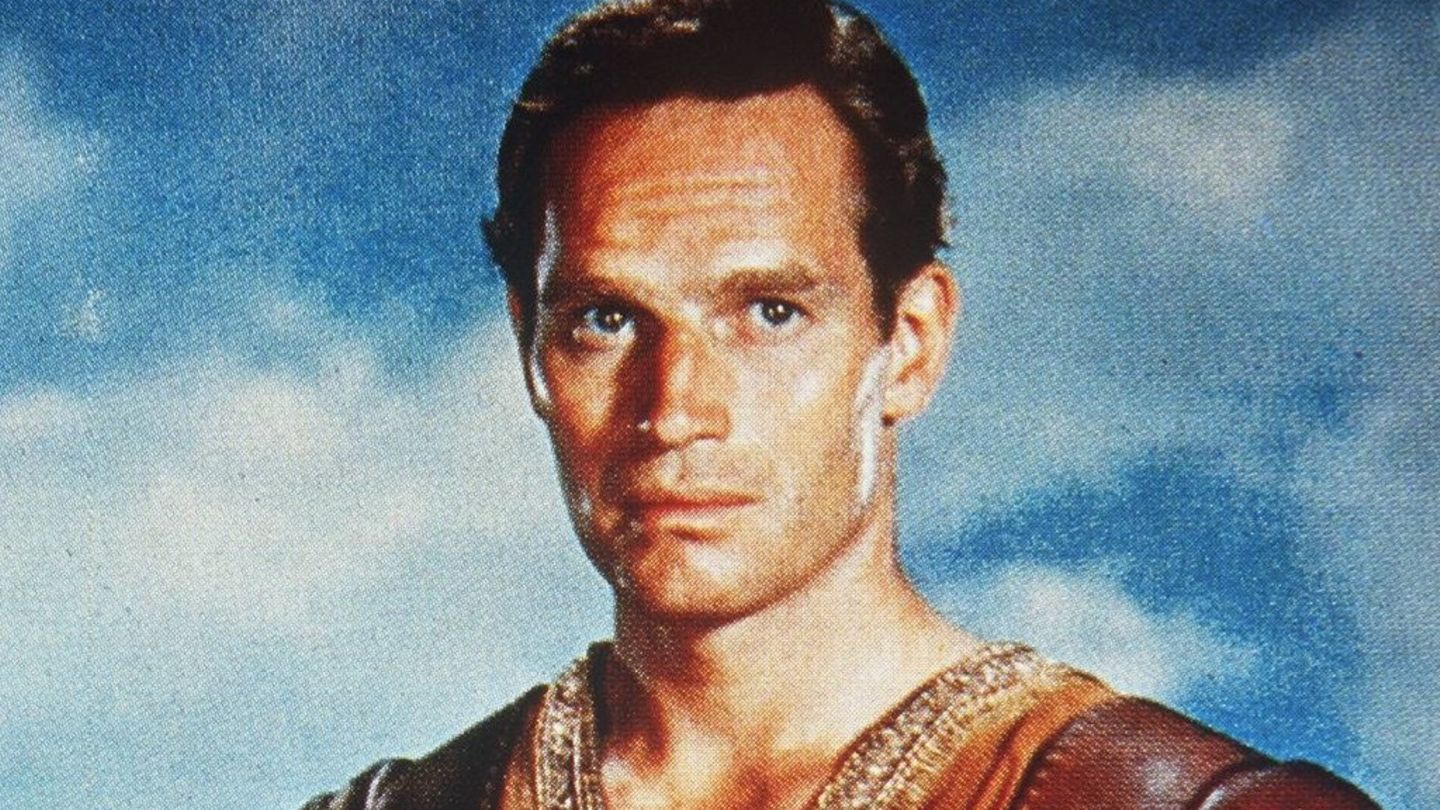Charlton Heston would have celebrated his 100th birthday on October 4th. He made film history with films like “Ben Hur”.
When the name Charlton Heston (1923-2008) is mentioned, two dominant images inevitably come to mind: monumental films and the NRA, the “National Rifle Association” of the USA. No wonder, after all, Heston was not only an outstanding actor, but also, as fans know from the documentary “Bowling for Columbine” (2002), a staunch supporter of gun rights – some would even say that he was a gun nut.
His famous speech to the assembled gun lobby, in which he declared that his rifle could only be taken from his “cold, dead hands,” remains unforgotten to this day. He relied on the Second Amendment to the United States Constitution, which guarantees the right to bear arms. But was Heston really just a misguided patriot and the perfect figurehead for an organization that often had more political power than was good for it?
Two surnames, one myth
The actor was born John Charles Carter in Evanston, Illinois on October 4, 1923. Only the fusion of two surnames created the Hollywood legend we know today: After his parents divorced, he took his stepfather’s surname Chester Heston and added his mother’s maiden name, Charlton – Charlton Heston was born.
Heston landed his first film roles in the early 1940s and also worked on radio. During World War II, he served in the Air Force for three years before working as a model in New York, where he met his great love, Lydia Clarke (1923-2018). Clarke was also a model and actress and was married to Heston from 1944 until his death in 2008 – almost 65 years. She died on September 3, 2018 at the age of 95.
A real lucky guy both professionally and privately
Charlton Heston found family happiness early on, and his acting career also took off. After years of impressing on the theater stage, he received his first leading role in the film noir “City in the Dark” in 1950. Director Cecil B. DeMille (1881-1959), with whom Heston had worked before, helped him achieve his breakthrough in 1956 – as Moses in “The Ten Commandments”, where he brought God’s word from Mount Sinai to his people.
From then on, Heston became a cinema hero for many years, especially in large productions that perfectly matched his imposing appearance with an impressive chest size. He portrayed characters such as John the Baptist in “The Greatest Story Ever Told”, Michelangelo in “Inferno and Ecstasy” and the title role in “Ben Hur” (1959), which earned him an Oscar for Best Actor.
From the past to the future
However, the era of monumental films in which Heston shone did not last forever. From the late 1960s onwards, he turned his attention to future worlds, such as in “Planet of the Apes” and “Omega Man”, or mastered disasters in films such as “Earthquake” and “Two Minutes Warning”.
When it became more difficult for him to find suitable roles in Hollywood, he switched to television and appeared in “The Empire – The Colbys”, a spin-off of “The Denver Clan”. His last film role was in 2003 in “Rua Alguem 5555: My Father”, where he played the concentration camp doctor and monster Josef Mengele.
From hero to tragic figure
Heston had earned a reputation as an invincible hero through his screen roles, but in reality, towards the end of his life, he was faced with an opponent he was no longer able to fight. In 2002, Heston revealed that he was suffering from Alzheimer’s disease. That’s why the documentary filmmaker Michael Moore (69) received criticism when he denounced a mentally unresponsive Heston in his film “Bowling for Columbine” (2002).
Moore considered Heston to be one of the reasons for the repeated shootings in the United States due to his connection to the NRA. Like the NRA, he seized on and sharply attacked Heston as the face of the gun lobby. Admittedly, Heston had previously used similar polemical methods that Moore often accused the Republican side of.
Before he was considered the face of the NRA, Heston was considered extremely liberal. In 1963, he marched side by side with Martin Luther King (1929-1968) and other Hollywood stars such as Marlon Brando (1924-2004) for the rights of African Americans, at a time when such commitment could well damage one’s career.
Whether Heston’s love of guns is seen as romanticized or even dangerous, it fit with his worldview – the worldview of a man who loved freedom in all its facets, albeit sometimes in an idealized way.
